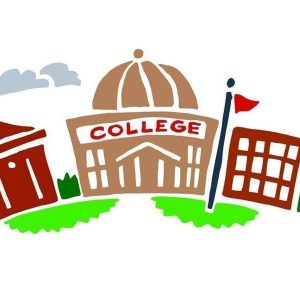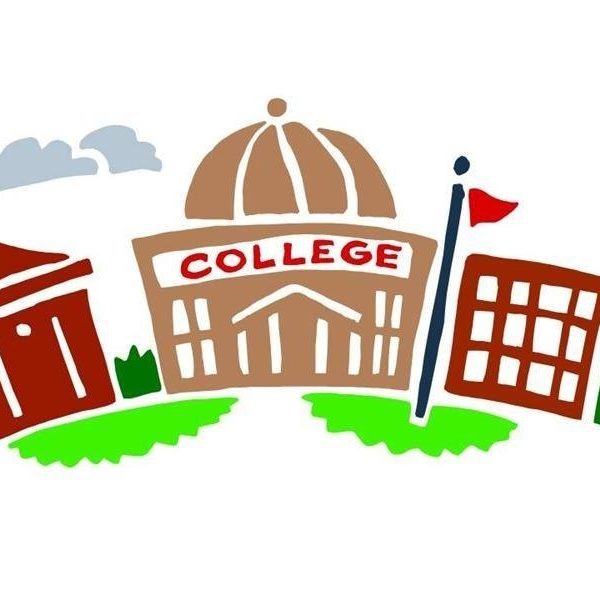 There are several courses that students should take in high school, if they plan to major in engineering in college. These include math (calculus if possible), science (chemistry, biology and physics), computer programming and any engineering classes that may be offered at your high school. Engineering Colleges look for applicants to have a strong STEM (Science, Technology, Engineering and Math) background. Taking Advanced Placement classes in these areas can provide the student with a foundation on courses that will be required as an engineering major. It can also enable the student to get some required courses out of the way before they actually start college. In addition, some engineering curriculums assume that the student will have taken calculus before they start college, and start their curriculum with the next level. It is a good idea to be aware of this before considering a college.
There are several courses that students should take in high school, if they plan to major in engineering in college. These include math (calculus if possible), science (chemistry, biology and physics), computer programming and any engineering classes that may be offered at your high school. Engineering Colleges look for applicants to have a strong STEM (Science, Technology, Engineering and Math) background. Taking Advanced Placement classes in these areas can provide the student with a foundation on courses that will be required as an engineering major. It can also enable the student to get some required courses out of the way before they actually start college. In addition, some engineering curriculums assume that the student will have taken calculus before they start college, and start their curriculum with the next level. It is a good idea to be aware of this before considering a college.
Tag: Engineering college
How To Look For An Engineering College
So you decide you want study engineering in college. Now what? Can you go to any school to major in engineering? There are several steps you should take to look for an engineering college.
What Kind of Engineer?
First you need to determine what kind of engineer you would like to become. There are many different fields of engineering such as mechanical, civil, aerospace or computer engineering. It is a good idea to first find out a bit about each field to determine where your interests and strengths fit best.
What Colleges Have My Major?
Next you need to look for schools that offer programs in that engineering major. Not all colleges offer engineering programs. In addition, not every college that has an engineering school offers degrees in every field of engineering. It is important to find out if the school offers the exact engineering major you are interested in so you are not wasting your time. Majors are listed on each college's website. Another good resource for this is US News List of Best Engineering Colleges.
How To Narrow It Down
After finding schools that have your major you should then consider the size of school you are interested in and the geographic location you would like to be in. This will help narrow down your choices. Virtual or actual tours of colleges can help you decide what size and location is best for you.
Grades and Scores
High school grades and standardized test scores play a big role in choosing a college. College websites will list the average scores they require for admission. Researching this will help you determine which schools you have the best shot of getting into, before you apply.
Tuition
An additional factor in choosing a college is cost. Individual college websites will list the tuition and other charges to attend that school. Loans, financial aid and scholarships are offered at most schools to help you pay for it. Unfortunately, you won't know if you qualify for them until after you apply to each school. Therefore, it is important to understand what you can afford before you apply.
 In short, the search for an engineering school is not simple. Looking for a college for engineering takes some thought and research, but the end result will be the perfect college for you.
In short, the search for an engineering school is not simple. Looking for a college for engineering takes some thought and research, but the end result will be the perfect college for you.
What is a Co-op?
Cooperative education or Co-op is a college program that balances classroom education with hands on learning. Co-ops are traditionally full time paid positions that are counted as part of a college curriculum. The position is held for a long duration of time, usually 3-6 months depending on the program. Students typically don't take classes during their co-op period. This is so students can focus on their work experience. Co-ops are part of the curriculum of many college engineering programs.
Co-op or Internship
Not all colleges offer co-ops. Co-ops are not to be confused with internships. Internships are work experiences that are much shorter in duration and are not always paid. They are more flexible than co-ops as they require fewer hours and can be completed over the summer or while a student is in classes.
How Co-ops Work
Colleges with co-op programs usually require the student to complete at  least two practical learning experiences. A co-op program can lengthen the time a student is in school. This is because there are semesters where they will be working full time and not attending classes. As a result, many university co-op programs are designed to be completed over 5 years.
least two practical learning experiences. A co-op program can lengthen the time a student is in school. This is because there are semesters where they will be working full time and not attending classes. As a result, many university co-op programs are designed to be completed over 5 years.
Engineering Co-ops
There are many colleges with engineering curriculums that incorporate co-ops. Northeastern University, Drexel University and University of Pittsburgh are just a few of the colleges that offer co-op programs in engineering. Overall, co-ops are a great way to explore a field and gain practical experience by working.
What is Experiential Learning?
Experiential learning is the process of learning through experience. Relating to engineering education, this could take the form of internships, co-ops, capstone projects or research. Basically, experiential learning bridges the gap between theory and practice. It provides a hands on experience to learn and understand specific practices in engineering. For example, it is one thing to work on the textbook problem of how to achieve better flow to produce a greater output of Chemical A at processing Plant X, and another to be an intern at Plant X seeing first hand where the issue lies in the piping and raw materials and speaking to the workers involved in the production process to find the best solution to get more output.
Internships and cooperative education programs (co-ops) are learning experiences where the student actually works for a company in a given field. Internships are shorter (a summer or a semester) and could be both paid and unpaid, part time or full time. Co-ops are longer and involve a more in depth work experience. Students stop taking classes to work full time (usually 3-6 months at a time), and are typically paid. The longer work experience of a co-op can give students an edge over their peers when they are looking for jobs after graduation.
Capstone projects and research are other ways to gain valuable experience and knowledge in your field. Working on a research project is a great way to apply the theories learned in your studies and explore a topic in greater depth. Similarly, capstone projects combine theory and practical experience to solve a problem or issue.
 Not all engineering programs offer experiential learning opportunities. Many have it built into their curriculum. Others do not offer these experiences and the student has to look for them on their own.
Not all engineering programs offer experiential learning opportunities. Many have it built into their curriculum. Others do not offer these experiences and the student has to look for them on their own.
Experiential learning is a valuable way to increase your understanding and knowledge of a subject through hands on experience. In addition, experiential learning will increase the student's value in the job market upon graduation. When looking into engineering schools it is beneficial to find out if the program you are considering offers experiential learning.
Virtual Information Sessions
 Many colleges are now offering virtual information sessions due to COVID-19. These sessions are a great way to get information about a school when you can't actually visit the campus. The sessions are often conducted in a webinar format with interactive chat so you can ask any questions you might have. Some schools offer just general info sessions, while others have general sessions as well as sessions on specific majors. Many also offer virtual tours of their campus. This is a great resource to look for to help with the college search. In addition, many colleges look for demonstrated interest in their school from their applicants. Traditionally, this would be shown by college visits and interviews, but with today's changes, signing up for virtual info sessions are also counted. Virtual info sessions are often found on the Visit Campus Page of a college's website. Here are links to a few schools with engineering programs that currently offer virtual information sessions.
Many colleges are now offering virtual information sessions due to COVID-19. These sessions are a great way to get information about a school when you can't actually visit the campus. The sessions are often conducted in a webinar format with interactive chat so you can ask any questions you might have. Some schools offer just general info sessions, while others have general sessions as well as sessions on specific majors. Many also offer virtual tours of their campus. This is a great resource to look for to help with the college search. In addition, many colleges look for demonstrated interest in their school from their applicants. Traditionally, this would be shown by college visits and interviews, but with today's changes, signing up for virtual info sessions are also counted. Virtual info sessions are often found on the Visit Campus Page of a college's website. Here are links to a few schools with engineering programs that currently offer virtual information sessions.
Why You Should Visit Engineering Colleges
After deciding which engineering field you are interested in, it is a good idea to visit schools that have that program. Every college has its own personality and all schools do not follow the same programs of instruction. This is something every student needs to consider when deciding if that school is the one for them. When you go on some college tours, you will start to see what aspects of schools you like, or do not like. This is the best way to start narrowing down choices of schools. By going on different campuses you will get a feel of what each school is like. The size and look of the campus, what the facilities and classrooms are like, and what the class sizes are will give you an indication of what is best for you. Try to take the engineering school tour at each school, if possible. An engineering tour will give more insight into what the curriculum is like and what life as a student in their program will be like. In addition, talking to current students and speaking to administrators about the specifics of the program you are interested in will give you more information. The administrators can also provide more specifics on the requirements for admittance to their program.
If you are not sure where to begin, first start exploring colleges that may be a short distance from where you live. This is a great way to start narrowing down what type of schools you are interested in without spending a lot of time and money.



